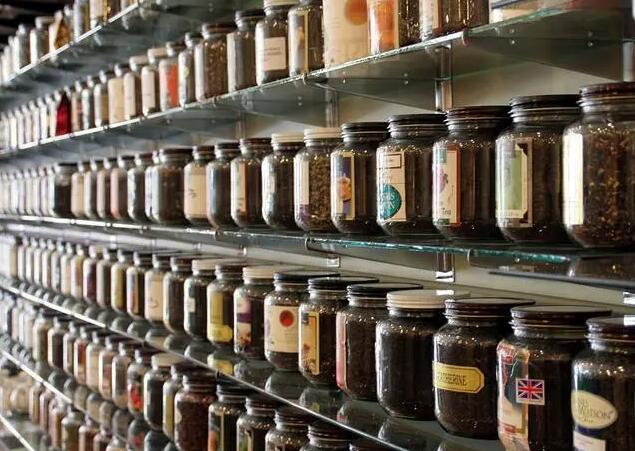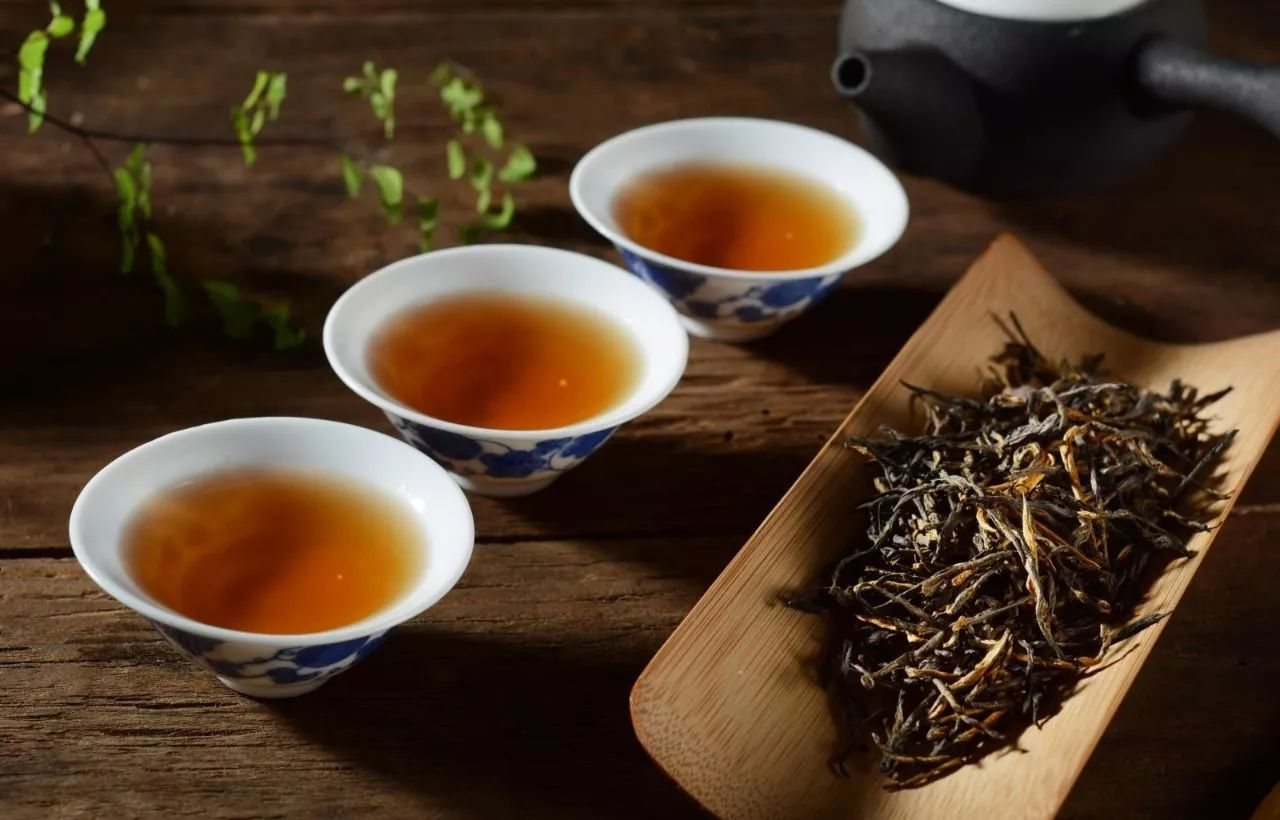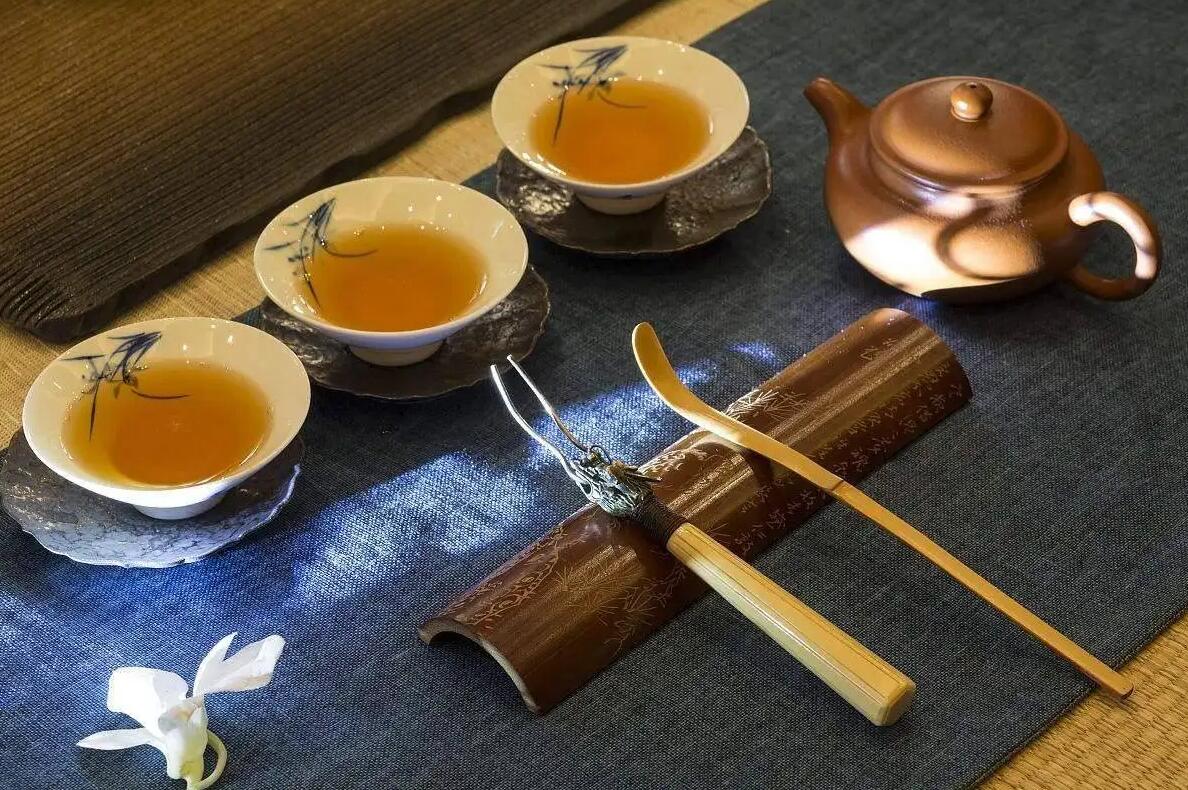Qing Dynasty
The Qing Dynasty is the end of the Traditional Chinese Tea Period and also the development period of the Modem Tea Ceremony And Modern Tea Sets. Tea in the Qing Dynasty had the most production for trade which went beyond silk and porcelain. The land transportation route used to be from the Fujian Wuyi Mountain, up to the North, passing by Jiangxi, Hubei, Hunan, Henan, Shanxi, Inner Mongolia and then the border trade town, Qiaketu which is between China and Russia. But the sea route gradually replaced the land route after the cancellation of the"ban on maritim" trade of tea from the Qing Government. The trade relation being established with South Asia, the Middle East, Western Europe, Eastern Europe, North Africa, West Asia and the Americas, dozens of countries have jointed the trade of tea. According to The Classic of Chinese Tea, the total quantity of China s tea exportation in 1840 was 19,000 tons, which in 1870 rose to 100,000 tons and in 1886 rose to 134,100 tons, hitting the highest record before the establishment of new China. The tea production and processing technology rapidly developed upon the increase of foreign trade of tea in the Qing Dynasty, green tea, black tea, oolong tea, white tea, yellow tea, dark tea, Pu'er tea and scented tea, all of these major tea’s processing technologies have been improved.
In the Qing Dynasty, the basic spirit and contents of the Chinese tea ceremony were mainly formed and promoted in three aspects.
The Nationwide Prosperity of the Tea House
Tea houses spread all over urban and rural areas in the Qing Dynasty, particularly in Beijing. The Tea House used to be a good entertainment option for the Eight-Flag lads, after the entry age of Manchu people. During the Kangxi and Qianlong prosperous periods, a popular doggerel "people tends to spend time in pubs and tea houses because they are so free and at ease", which vividly depicts the social fact that the popularity of tea house by the dignitaries and ordinary people in the Qing Dynasty, the tea activities of civil society was very active.
The Scholars Preference and Appreciation for Tea
In the Qing Dynasty, the scholars were still the main force of passing on the Chinese Tea Ceremony. From the famous Ideologist Wang Chuanshan to one of the eight exceptional Yangzhou artists, Jin Nong; from Kang Youwei who promoted the reform to the former British, French, Belgian Ambassador, Liu Ruifen; from Emperor Kangxi's minion, Gao Shiqi, Emperor Qianlong's minion Ji Xiaolan to the Ideologist Lian Heng. In spite of their different political stances, different ideas, different backgrounds and status, they all had one thing in common - they love tea so much.
Jin Nong's Thanks to Mr Yang in Xiang for the Junshan Tea Flake (one in four):
How could you have such good tea and it is really good of you to share.It would really be bad if add some salt and ginger in.
Gao Shiqi's Wuyi Tea:
Jiuqu River and Mountain are gorgeous, the tea room is having the tea competition; How diversed the water from silver bottles and how aromatic the teas are.
Lian Heng's Tea (one selected from 22):
See Nature between water and mountain, my hobby is reading 'the Bible of Tea'. Where is Lu Yu now? Could we appreciate it together with him.
Liu Ruifen's Awake from a Rest
Afternoon tea was just ready after a good nap. The fresh Lotus leaves are waving under the clouds bring the rain.
Kang Youwei's Dragon Well (selected from five):
Why should we ask the clean slate, why not just enjoy the natural sound of spring and mountain. The water is ready and tea is aromatic, it helps me to think and write.
"Why should we ask the clean slates, why don’t you enjoy the sound of mountain and spring,". This is the best reflection of the inclusive intellectuals to tea in the Qing Dynasty.
Qian Long from the Concepts of "Duke Yin Soup, Saint Lu Tea" Brought Them forth into Practice
Emperor Qianlong (1711A.D. ~ 1799A.D.) had the incumbent reign for sixty years from 1735 A.D. to 1795 A.D.. Qianlong was the most famous emperor loving tea in the history. It was said that when he was trying to pass the throne onto his son Jiaqing and put himself to the position father of the emperor, the close officials repeatedly dissuaded him that "the nation could not be free of emperor any day', but he laughed and said Ihe nation could not be without tea any day".
Emperor Qianlong used to take tea at leisure, to "relax and ease the tension' after his diligence work, which made him look like such a tireless and energetic man through vast works. He mentioned and described this in many of his tearelated poems, such as:
I'd like to brew by pot accidently.Drinking tea and live casually are none of my business, stay at a wonderful tea house just for enjoy the good tea. Manage to try the new Longjing Tea from busy life. I really like to enjoy this spring nearby.
Qianlong used to take tea to keep in good health.He highly praised the health really like to enjoy this spring nearby.
Qianlong used to take tea to keep in good health.He highly praised the health function of tea in his poem.
Lotus Dew Water to Brew Tea (selected)
Nothing could be better than the dew water, it never would run out.It is perfect for tea and the beautiful when brewing. It is so clear and comforts the spirit.
The "Gold pan to keep dew" refers to the story that Emperor Han Wu listened to the priests of Taoism, to make gold pans to receive and keep dew from the heaven. Qianlong died at the age of 89, which is quite a long life for kings in the history. He thought that tea is more effective than holy dew water from the heaven to keep good health.
Qianlong was utterly inspired to use the philosophy of the Chinese Tea Ceremony to rule the country.
An Emperor in the Qing Dynasty created and held the thousand-elders banquet in order to strengthen the national unity, close the relationship between the officials and the emperor and promote respect for the elderly. The thousand-elders banquet was where the Emperor would invite the officials and Scholars from ministries, Military Generals from Han, Manchu and Mongolian armies who were aged 65 or over to a tea feast. The Biggest one was held in the fifty-second Kangxi year (1713A.D.) when Emperor QingShengzu Xuanye was celebrating his 60 years birthday at the Changchun Garden. He invited 4240 Han Ministers and Scholars over the age of 65; three davs after, he invited 2605 military officials over the age of 65.
Emperor Qianlong also held Chonghua Palace tea feast, to show his love and appreciation to the Ministers of Manchu and Han. The tea banquet used the three-clear tea (dry plums, pine seeds and chayote slices) routinely, to indicate the requirement and expectations on the officials. After the baquet, they had the poem activity as well, which was themed on "the emperor and officials’ responsibility to administer the countiy and we should take the honor". The "three-clear-tea-themed" banquet had been held for 47 times during Emperor Qianlong's reign.
From a large number of historical facts, we can see that the development of the Chinese Tea Ceremony is just like the Yangtze and Yellow Rivers Running always: no matter which dynasty or which race was ruling, the Chinese tea ceremony always followed the time and continuously develop. The only difference is how it developed in a diversed way, some twisting but some fast and strong. Su Shi's poem says "It is not interrupted by flowers' bloom and fall, nor related to the change of spring's coming and going." Actually the development of the Chinese tea ceremony is just like different flowers blossoming in different seasons, plum, peach, lotus and chrysanthemum, one by one, different aromas but equally pleasant fragrance to human.
Modem Times
Since the ancient times, "the prosperity of tea demonstrates the prosperity of the nation." The Rise and Fall of the tea ceremony is always associated closely with the country. The revitalization of China’s modem tea ceremony started since Comrade Deng Xiaoping became the core of the CPC Central Committee; it began its rapid development after 1989, when Jiang Zemin became the core leadership of the CPC Central Committee. Since Comrade Hu Jintao, general secretary of the CPC Central Committee, President of People’s Republic of China made the national policy that "people-centered, building a harmonious society and further the reform and the open policy", which has driven, the China's tea culture to set off a bigger development.
Since the reformation and opening up from 1980's, the social stability, economic prosperity and the liberation of productivity, China's overall national strenght have been continuously strengthened and the rapidly rising living standards of the people, people’s ideas and spending habits tended to be modernized. These all are the fertile soil for the rejuvenation of the Chinese Tea Ceremony.
In addition, China is on route to achieving the nation^ great rejuvenation, needs stability, unity and a harmonious society. We need to develop the market economy inspired by the spirit of tea. From an objective point of view, the calling for the revival of the tea ceremony is needed by modem times, which is the "climate".
China is the hometown of tea, and the birthplace of the Tea Ceremony. In recent years, the continuously growing variety and quality of the production of the tea industry has been the material basis of the tea ceremony. At the same time, tea drinking in China has a broad mass base, which is the location".
With the process of modernization, the growing economic market, the pace of life has been significantly accelerated and the competitiveness of work has continuously strengthened. The urbanization drives people away from the nature. People are more vulnerable under the psychological and physical stress, more liable to experess nervous emotions of anxiety, irritability and depression. There was a saying "Hard then relax is the balanced way". After tensional works, people needs to return to the nature, to relax, to eliminate the fatigue and gain a mental adjustment, while tea is the best nourishing drink for people and the tea ceremony is a best way to relax themselves. In addition, with the development of modem medicine, the nutritional ingredients, health function, anti-aging, anti-disease tea have been deeply studied and people pay more attention to health care, and want to live longer. All these drive the masses of people to look forward to the revival of the Tea Ceremony. This is the will".
Having already the climate, the location and the will, the Chinese Tea Ceremony will take off like a dragon flying, a phoenix's Nirvana. It will fly as high as it never been at. With the Chinese Nation. traditional spirit and the beneficial climate, it would promote the spirit of the Chinese tea ceremony, became an indispensable part of building a harmonious society and the universal world.
The Chinese Tea Ceremony has a glorious past and will also have a bright future.



